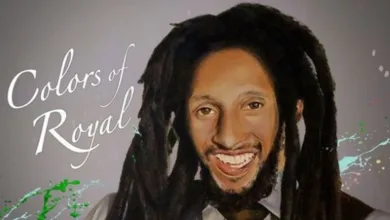Traveling Caribbean Film Showcase launched in St. Kitts And Nevis
ST. LUCIA – What is believed to be the Caribbean region’s first traveling film showcase was officially launched on Thursday, February 22 at a ceremony held at the Sir Cecil Jacobs Auditorium of the Eastern Caribbean Central Bank – the venue for the five-day showcase – in St. Kitts and Nevis.
Chairman of the Havana-based International Organizing Committee, Senor Rigoberto Lopez, delivered the keynote address.
Sponsored by UNESCO, and supported by the Cuban Institute of Art and Cinematographic Industry in collaboration with the Caribbean Community (CARICOM), the Traveling Caribbean Film Showcase is a 12-week itinerant Caribbean film festival bringing together film-makers from over 15 countries to showcase short films and documentaries produced in the Caribbean.
The Showcase will start in St Kitts and Nevis on February 22-26 and end in Cuba on May 27– 31 with intermediate stops in St Vincent and the Grenadines, March 26 – 31, Dominican Republic, March 22 – 28; Jamaica, April 1– 8; St Lucia April 13 – 20; Belize April 12 – 15 and 19 -22 and Nassau The Bahamas on May 7 -12.
The event will see the screening of 14 to 16 hours of the most recent feature films, documentaries and cartoons produced in the Region about Caribbean peoples, issues and culture.
Subtitled in English, Spanish, French and French Creole, it is expected to promote Caribbean cultural identity and raise awareness of persons to the potential of the Caribbean filmmaking industry, and contribute to the preservation of Caribbean audiovisuals in all its diversity.
Other countries are to submit their respective dates and venues.
According to the Committee’s Chairman, Rigoberto Lopez, thirty films from 15 countries have been selected from a pool of 110 films submitted by 21 countries, to be part of the Showcase Official Screening Program.
Commenting on the selection process, Senor Lopez, himself a Cuban filmmaker says, “The selection process was inspired by the principle of the respect to the quality of the films, the power of the stories they tell us, as well as their capacity to represent the linguistic and cultural diversity featuring our region.”
The idea for the film festival was born in Jamaica in 2005 during a Cuban Cinema Festival.
Officials from both countries solicited the support of several institutions and organizations such as the UNESCO Regional Office for Culture in Latin America and the Caribbean, the Association of Caribbean States, cultural institutions and governments of nations hosting the event, the University of the West Indies, the Casa de las Americas Caribbean Studies Centre, and the Foundation of the New Latin American Cinema, TELESUR.
The International Organizing Committee comprises filmmakers, scriptwriters, directors and producers drawn from both the English and Spanish Speaking Caribbean as well as representatives from UNESCO.



